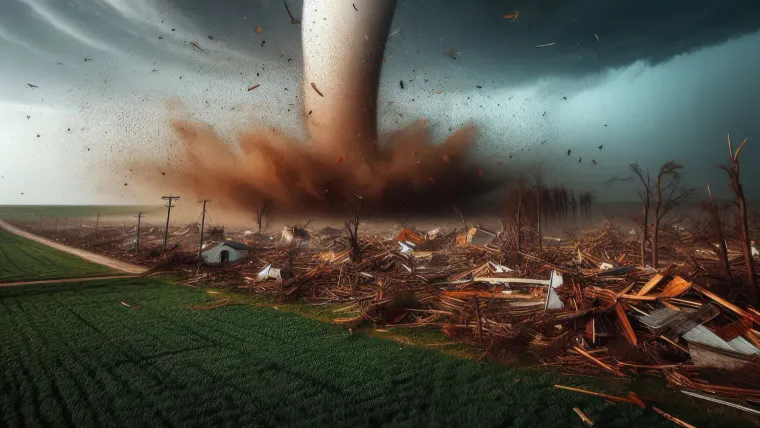The prologue of Job tells of a fictional day when four messengers deliver terrible news to a man named Job. The scale of the tragedy unfolds quickly, with each messenger arriving hot on the heels of each other.
While [the previous messenger] was still speaking, another messenger arrived with this news:
— Excerpt from Job 1:16, 17, & 18 NLT
The first messenger tells Job that Sabean raiders have stolen his donkeys and oxen, killing all of his servants except one (1:13-15).
The second messenger describes how a lightning strike started a wildfire that killed all of his sheep as well as all his shepherds bar one (1:16).
The third messenger reports that three Chaldean raiding parties have made off with his camels, leaving only one servant alive (1:17).
The fourth messenger details how a gale-force wind "swept in from the wilderness" (v.19) and caused his eldest son's house to collapse in on itself with all of his children gathered inside. His seven sons and three daughters are all confirmed dead. The messenger is the only one who survived (1:18-19).
These four messengers are all that's left of his extended family and his businesses.
"I am the only one who escaped to tell you."
— Excerpt from Job 1:15, 16, 17, & 19 NLT
And, as if that wasn't enough suffering for one man, days later, Job becomes afflicted with painful sores that covered every part of his skin (1:7).
While two sets of marauders cause some of Job’s suffering, he and his friends completely ignore this human evil within the debate that follows. Knowing who to blame when people steal and murder is easy, but who do you blame when nature’s storms kill our children and diseases cause our suffering?
Everyday disasters
Like Job, we live in a world where natural disasters can unexpectedly bring indiscriminate tragedy. However, unlike in the ancient world, these disasters are now daily and we cannot in good conscience label them as "natural."
Climate disasters would be a more appropriate term to highlight the direct link between their increased frequency and human activity. Our burning of fossil fuels for energy has added an extra 144ppm of carbon dioxide into our atmosphere since the beginning of the Industrial Revolution, warming our climate by 1.53℃.
These figures may seem tiny, but they're causing a devastating cascade of consequences across our planet. For example, between 1900 and 1922, there was an average of nine natural disasters each year. One hundred years later, between 2000 and 2022, there was an average of seven climate disasters each week. [Source: Our World in Data]
Climate disasters are now daily.
Every day, more stories like Job’s are being written with families dying, homes being destroyed, people’s health being ruined, food and fresh water sources being disrupted, and businesses being wiped out.


